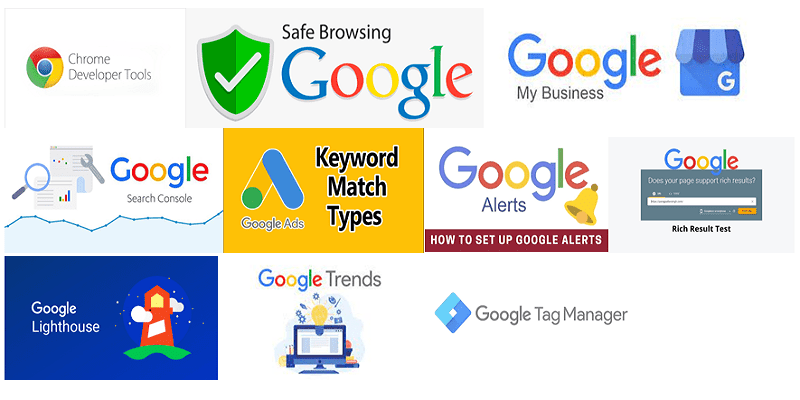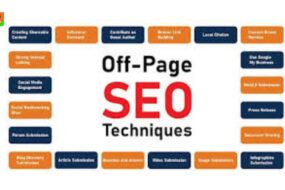
In today’s information age, having a strong online presence is crucial for businesses and individuals alike. However, many people often get confused between the terms “web page” and “website.” While these two terms are related to the internet, they have significant differences. Web pages and websites are the basic building blocks for online content. Knowing the difference between them can help you create an effective online presence that meets your needs. In this blog post, we’ll explain the difference between web pages and websites, their importance, and how they work together to create a great online experience. Whether you’re a blogger, business owner, or simply looking to create an online portfolio, understanding the difference between these two terms is essential.
Introduction: Why it’s important to understand the difference between web pages and websites
It’s crucial to understand the difference between web pages and websites, especially if you’re planning to establish an online presence. Web pages and websites are often used interchangeably, but they have different meanings and purposes. Understanding these differences can help you make informed decisions and create an effective online strategy.
A web page is a single document that contains information such as texts, images, videos, and links. It is accessed through a web browser and has a unique URL or web address. Web pages are usually designed to provide specific information or content, and they can be created using HTML, CSS, and other web technologies.
On the other hand, a website is a collection of web pages that are interconnected and share a common domain name. It is a broader concept that encompasses various web pages, features, functionalities, and services. A website can be used for different purposes such as e-commerce, blogging, social networking, and more.
Understanding the difference between a web page and a website is important because it can affect the way you create, manage, and optimize your online presence. For example, if you’re creating a blog, you need to create multiple web pages to publish your content, but you also need to design a website that will provide a consistent user experience and navigation.
In conclusion, understanding the difference between web pages and websites is crucial when it comes to building a successful online presence. By knowing the distinctions between the two, you can create a more effective strategy that meets your goals and objectives.
What is a web page?
A web page is a single HTML document that is a part of a larger website. It is essentially a file that is accessed through a web browser and contains information such as text, images, videos, and links. A web page is identified by a unique URL or web address that is used to access it.
Web pages are used to display specific information to the user and are designed to be visually appealing and easy to navigate. They can be static, meaning that the content doesn’t change frequently, or dynamic, meaning that the content is updated regularly.
Web pages can be standalone, but they are usually a part of a larger website that contains multiple pages. Each web page has a specific purpose and is designed to fulfill a particular function. For example, the home page is the first page that a user sees when they visit a website and provides an overview of the site’s content and purpose.
In summary, a web page is a single file that is accessed through a web browser and contains information such as text, images, and links. It is designed to be visually appealing and fulfill a specific purpose, and is usually a part of a larger website that contains multiple pages.
Definition and examples of a website
A website is a collection of web pages that are designed to provide information about a particular topic, business, organization, or individual. It’s a digital platform that can be accessed using the internet. A website can have one or many web pages, and each page can have a unique URL, content, and design. Websites can range from simple one-page sites to complex e-commerce platforms with thousands of pages.
For instance, a website for a restaurant may have several web pages such as home, menu, about us, contact, and reservation. Each page will have different information and design to serve its purpose. On the other hand, a website for a news company may have many web pages, such as home, categories, articles, opinion, and archive. The content and design of each page will differ to provide the best experience to users.
Websites can be used for various purposes, including sharing information, promoting products or services, communicating with customers, and building brands. They are vital for businesses, organizations, and individuals looking to establish an online presence and reach a wider audience. A website can be customized to fit specific needs and goals, and it’s essential to ensure that it’s user-friendly, engaging, and accessible to all. In summary, a website is a powerful tool for building an online reputation and achieving success in the digital world.
The importance of websites for businesses, organizations, and individuals
Having a website is crucial for businesses, organizations, and individuals for many reasons. Firstly, it provides a platform to showcase the products or services offered. This is important as it gives potential customers a chance to learn more about the business or organization, to see its products or services, and to determine if they want to engage with it. Without a website, businesses and organizations may seem less professional, and customers may not take them seriously or trust them as much.
Secondly, websites provide a way for businesses, organizations, and individuals to reach a broader audience. With the advent of the internet, people can now find information about almost anything online. Having a website ensures that a business or organization can be found by people who are searching for their products or services.
Thirdly, websites can act as a platform for communication. Businesses and organizations can use their websites to communicate with customers, to provide updates, and to gather feedback. This can be done through various means such as contact forms, chatbots, or social media integration.
Finally, websites are important for establishing credibility. In today’s digital age, having a website is essential for businesses and organizations to establish credibility and legitimacy. Websites provide a platform to showcase testimonials, certifications, and other credentials that can help build trust with customers.
In conclusion, having a website is vital for businesses, organizations, and individuals looking to establish a strong online presence, reach a broader audience, communicate with customers, and establish credibility.

Benefits of having a website over just a web page
Having a website instead of just a web page can provide numerous benefits for any business. A web page is a single page on the internet that provides information about a specific topic. On the other hand, a website is a collection of web pages that are interconnected and provide a more comprehensive view of a business or organization.
One major benefit of having a website is the ability to showcase your products or services in a more detailed and organized manner. With a website, you can create multiple web pages that highlight different aspects of your business, such as your products, services, and company history.
Additionally, a website allows you to establish a brand identity online. You can customize the design and layout of your website to reflect your brand and create a cohesive online presence. This can help build trust with potential customers and make it easier for them to recognize and remember your brand.
Another advantage of having a website is the ability to capture leads and generate sales. With the use of features such as contact forms and call-to-action buttons, you can encourage visitors to your website to take action and become customers. A website can also provide valuable information such as pricing, reviews, and testimonials, which can help potential customers make informed purchasing decisions.
In summary, having a website over just a web page can provide numerous benefits for any business, including the ability to showcase products or services, establish a brand identity, and generate leads and sales.
The basics of creating a web page
Creating a web page is one of the essential and fundamental skills for anyone interested in building a website. A web page is a single HTML document that is displayed on the internet and can be accessed by users through a web browser. It usually contains text, images, and other multimedia elements that are arranged in a specific layout to convey information to the user.
To create a web page, you need to have knowledge of HTML and CSS, which are the building blocks of web design. HTML or HyperText Markup Language is used to structure the content of the web page, while CSS or Cascading Style Sheets is used to define the visual appearance of the web page.
When creating a web page, it is important to keep in mind the purpose of the page and the target audience. This will determine the layout, design, and content of the web page. You should also ensure that the web page is optimized for search engines by using appropriate keywords and meta tags.
Once you have created your web page, you can then upload it to a web server so that it is accessible to the public through the internet. You can also link it to other web pages to create a complete website.
Overall, creating a web page is a basic and essential skill for anyone interested in web design and development. With the right knowledge and tools, you can create web pages that are visually appealing, optimized for search engines, and effective in conveying information to your target audience.
The process of creating a website
Creating a website can seem like a daunting task, but with the right tools and guidance, it can be a rewarding and exciting experience. The process of creating a website typically involves several key steps.
First and foremost, you need to determine your website’s purpose and goals. Are you creating a website for your business, blog, or personal brand? Once you have a clear understanding of your website’s purpose, you can move on to the next step.
The next step is selecting a domain name and hosting provider. Your domain name should be reflective of your website’s purpose and goals, and your hosting provider should offer reliable service, security, and scalability.
Once you have your domain name and hosting provider, it’s time to design your website. You can either choose to design your website yourself, or you can hire a professional web designer to do it for you. Whichever route you take, it’s important to ensure that your website design is visually appealing, user-friendly, and optimized for search engines.
After you’ve designed your website, it’s time to create content. This includes writing copy, creating images and videos, and developing a blog or other content marketing strategy. Your content should be unique, informative, and engaging, and should be optimized for search engines.
Finally, you need to launch your website and promote it to your target audience. This involves implementing SEO best practices, social media marketing, email marketing, and other promotional strategies to drive traffic to your website and convert visitors into customers.
Overall, the process of creating a website can be time-consuming and complex, but with the right approach and tools, you can create a website that is both beautiful and effective in achieving your goals.
Understanding different website platforms and hosting options
When it comes to building a website, there are many website platforms and hosting options available in the market. Each platform and hosting option has its own set of features, benefits, and limitations, which can make it difficult to choose the right one for your business needs.
Some popular website platforms include WordPress, Wix, Squarespace, Shopify, and Drupal, among others. These platforms offer different levels of customization, ease of use, and pricing plans, making it important to weigh the pros and cons of each option before making a decision.
When it comes to hosting options, there are shared hosting, dedicated hosting, cloud hosting, and virtual private server (VPS) hosting. Shared hosting is the most affordable option, but it may not be ideal for websites that require high performance and speed. Dedicated hosting, on the other hand, offers full control over the server and is suitable for large websites with high traffic. Cloud hosting is a scalable and flexible option that can handle sudden traffic spikes, while VPS hosting offers a balance between affordability and performance.
Understanding the different website platforms and hosting options is crucial in building a website that meets your business needs and offers a great user experience to your visitors. Consider your budget, website goals, and technical skills when selecting a platform and hosting option, and don’t hesitate to seek expert advice if you’re unsure which option is best for you.

Best practices for designing web pages and websites
When designing a web page or a website, there are several best practices that you should keep in mind to ensure that your design is both effective and user-friendly. First, make sure that your design is clean and uncluttered, with a clear and easy-to-follow layout. Use a color scheme that is easy on the eyes, with a font that is easy to read.
Second, ensure that your website is optimized for both desktop and mobile devices. With the majority of web traffic now coming from mobile devices, it’s essential to make sure that your website is mobile-friendly and responsive to different screen sizes.
Third, focus on creating high-quality, engaging content that is relevant to your target audience. This will not only help to improve your search engine rankings but also keep your visitors engaged and coming back for more.
Fourth, navigation is key. Make it easy for users to find what they are looking for on your website by using clear and intuitive navigation menus.
Finally, test everything thoroughly before going live. Check your website’s performance on different devices and browsers, and make sure that all links are working correctly. By following these best practices, you can create a web page or website that is not only visually appealing but also highly functional and user-friendly.
Conclusion: The importance of having a strong web presence in today’s digital age
In today’s digital age, having a strong web presence is essential for any business. It’s not just about having a website or a web page, it’s about having an effective, engaging, and user-friendly online presence that helps you stand out from the competition.
Customers today expect to find information about your business online, and if they can’t find you, they are likely to turn to your competitors. Your website or web page is often the first impression a potential customer will have of your business, so it’s important that it’s a good one.
A strong web presence can help you establish credibility, increase brand awareness, and drive more traffic and sales to your business. It allows you to connect with customers in a more meaningful way, providing them with the information they need to make informed decisions.
Furthermore, having a website or web page that is optimized for search engines can help you rank higher in search results, making it easier for potential customers to find you. It’s also important to ensure that your website or web page is mobile-friendly, as more and more people are accessing the internet via their mobile devices.
In conclusion, having a strong web presence is crucial for any business that wants to succeed in today’s digital age. Whether you have a website, a web page, or both, it’s important to ensure that they are effective, engaging, and user-friendly, and that they help you stand out from the competition.
We hope you found our article about the difference between a web page and website informative and useful. Understanding the difference between the two is crucial when it comes to establishing a strong online presence for your business or personal brand. Knowing which one is right for you depends on your specific needs and goals. We hope that now you have a better understanding of how web pages and websites work and can use this knowledge to make informed decisions about your online presence. Thanks for reading!













3 replies on “Web Page VS Website”
Thanks for sharing. I read many of your blog posts, cool, your blog is very good.
Your article helped me a lot, is there any more related content? Thanks!
Your article helped me a lot, is there any more related content? Thanks!